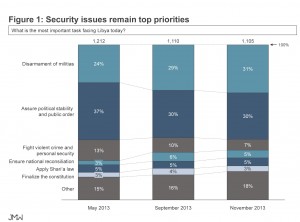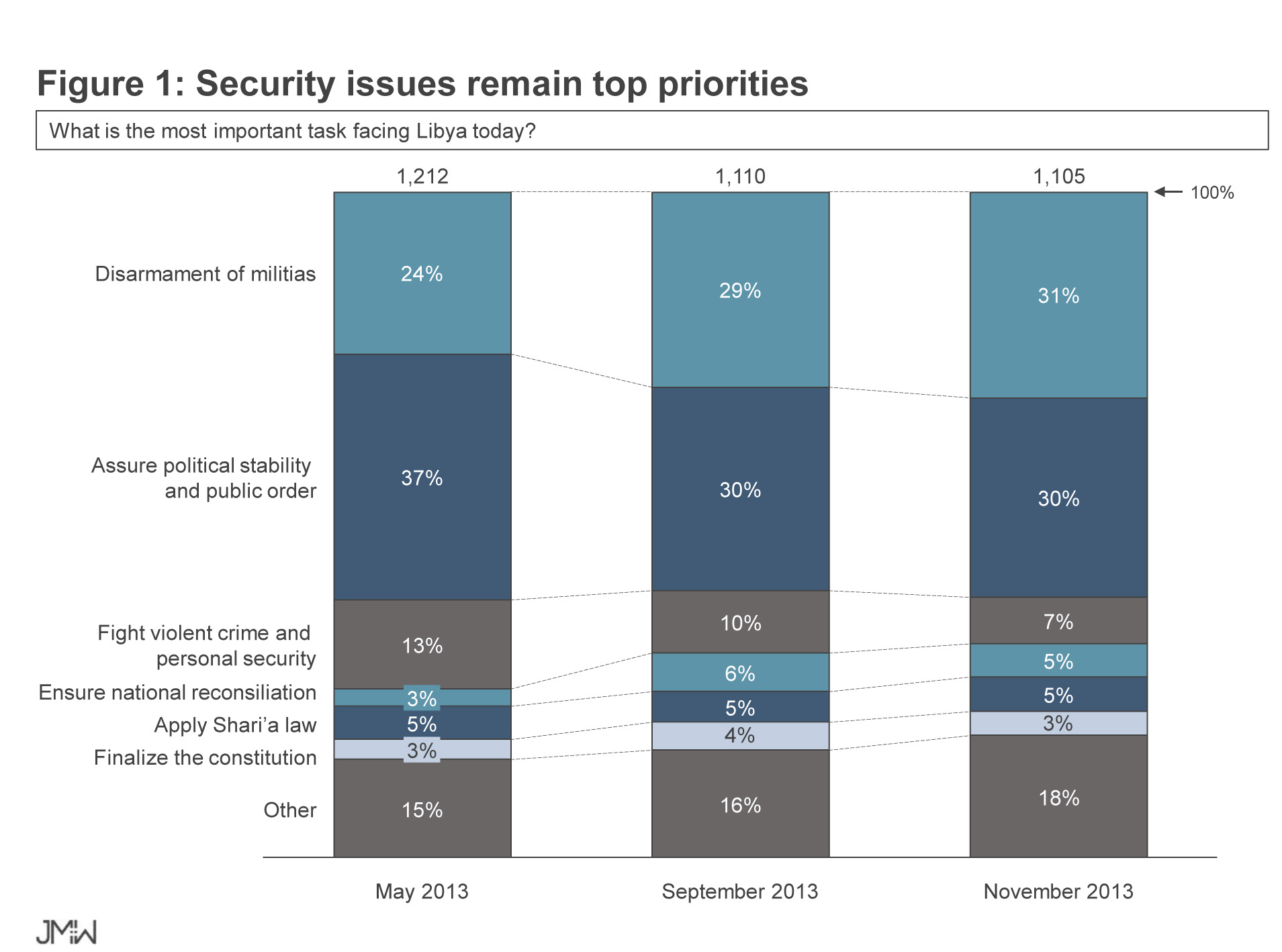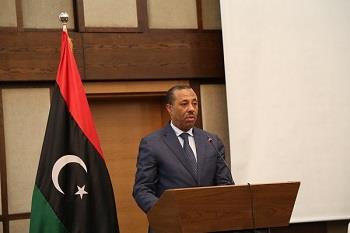By Sami Zaptia.
Tripoli, 12 March:
The third and final public opinion survey conducted in Libya last year, financed by the Danish Foreign . . .[restrict]Ministry and conducted by the (American) National Democratic Institute (NDI) and the (Danish) JMW Consulting, was released today.
The survey entitled Committed to Democracy and Unity confirms some important trends and regularities within Libyan public opinion following on from the results of the May and September 2013 surveys.
The poll asked questions on seven areas, namely: Current Affairs, Regionalism, Democracy and Governance, Political Parties and Leaders, Constitution-drafting Assembly, International Organizations, and Armed Groups and Personal Safety.
It was conducted from 10 November to 8 December 2013 through face-to-face interviews. It is made up of 1,200 responses from Libyan nationals aged 18 years and above. Respondents were randomly selected in a probability-proportional-to- size sampling and in all 13 governorates of Libya based on the 2006 census.

As with the previous two studies, the latest poll again confirms that security issues remain top priorities for Libyan citizens. Asked what is the most important task that Libya is facing today, the disarmament of militias (31%) and the assurance of political stability and public order (30%) score the highest, consistently reflecting the previous two polls.
Asked to describe their feelings towards Libya’s current situation, 64 percent responded optimistically, with 36 percent being pessimistic. Yet 41 percent believe that Libya is worse off than before the 2011 revolution. Only 32 percent believe it is better off. When asked to look forward, 64 percent felt that Libya will be better off in three years’ time.
With regards to the abduction of Prime Minister Ali Zeidan in early October 2013, 78 percent felt that it was not justifiable at all, yet at the same time 61 percent said that it had worsened their opinion of the Prime Minister.
On topics of regionalism, 65 percent of those in the east disagree with the Cyrenaica Political Bureau’s declaration of regional autonomy. This figure is up to 85 percent in the south and 98 percent in the west. In the south, 84 percent disagree with a declaration of regional autonomy by tribal leaders.
Concerning the topical subject of oil, the majority of Libyans feel that the seizure of oil production facilities by armed groups is not justifiable.
On democracy, 80 percent of Libyans agree that despite its problems, democracy is still the best form of government. Surprisingly, 41 percent characterize democracy as the protection of human rights and individual freedoms and 36 percent as the opportunity to change the government through elections. Only 9 percent of responses involved economic improvement.
This contrasts with responses in the neighbouring states of Tunisia and Egypt, JMW Consulting informed Libya Herald at a recent invitation-only launch of the results of this opinion poll. Libya’s hydrocarbon-based GDP is deemed the influencing factor.
Whilst most Libyans expect either the government or the GNC to be responsible for their security, reconciliation and to combat corruption, 68 percent say the GNC’s performance is poor or very poor. Most public services are deemed as poor or very poor, except (surprisingly) for education.
On the political front, an increasing number of Libyans (47% compared to only 14% in May) believe that political parties are not necessary in a democracy, and only 50 percent as opposed to 74 percent in May and 61 percent in September said they intended to vote at the next parliamentary elections.
All political parties scored negative favourability and registering declines since the last two polls. The National Forces Alliance is the only party with positive net favourability and the most popular, while the Justice and Construction party is deemed as the least positive party.
When it came to political leaders, the worrying trend is that most have lost popularity, including the most popular, Mustafa Aduljalil and the second most popular Mahmoud Jibril. The least popular are Abdul Rahman Swehli, Abdul Hakim Belhaj, Abdullah Naker, and surprisingly Nuri Abusahmain.
With regards to the Political Isolation Law, only 39 percent support it while 52 percent resoundly disapprove of it.
On the issue of the constitutional-drafting committee, 42 percent believe that Islamic Sharia should be the main source of legislation. While 28 percent feel that Sharia should be a source and 28 percent feel that it should be the only source.
On the issue of safety, quite a large number of Libyans now feel unsafe whilst conducting daily routines such as shopping or travelling. Armed groups that abide by government authority are seen positively whilst those not supported by the government are seen negatively.
A large number of Libyans (82%) deem the spread of weapons a negative rather than a positive when contributing to safety and 76 percent believe weapons should be collected from the community. Whilst 70 percent of Libyans said they did not own a firearm, the remaining 30 percent said that a general improvement of the security conditions, a well-functioning military and police, would help convince them to handover their weapons.
Whatever the reservations that may be held against such polls with a relatively small sample, the three opinion polls conducted in 2013 seem to have some consistent messages. In view of the current turbulent political situation in Libya, such opinion polls could act as valuable empirical foundations for policy formulation and action, and send messages from the electorate to the various power groups.
It is hoped that results of the opinion surveys are shared more widely with members of the general public and targeted at specific stakeholders and power centres. In an ideal world, the GNC or the Libyan government would become stakeholders of the survey and would help disseminate its results more widely, encouraging public interaction.
The owners of the three opinion surveys have come to the end of their contract, and it is hoped that they are able to find new sponsors for another round of opinion polls in 2014.
For the full report see: http://jmw-consulting.com/
[/restrict]











